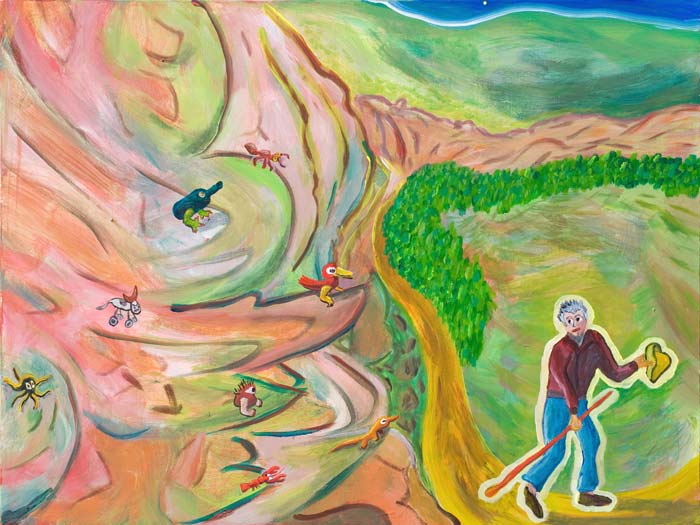
Initiation
by Robert Guffey

They pulled me out of the back of the car and dumped me on the wet concrete. It was raining that night. I could hear them talking to one another about how far down the alley they should take me. I could see nothing through the blindfold.
Two of them grabbed my bound legs. The third guy, the real big one I think, gripped my shoulders and lifted me into the air. As if I was a dead cow all trussed up and waiting to be skinned, they hauled my body about hundred feet away from the idling car, then dropped me onto the ground once more. This time I landed in soggy scraps of what felt like cardboard and old newspapers. Despite the rain, the scent of dead fish and urine and cheap liquor permeated the air. I could hear a horde of rats scampering away in fear.
My heart was beating at a rapid pace. Strangely, stupidly, my first thought was panicked concern for my rented tuxedo. Only then did I wonder, Is this it? Is this the end?
I heard the swift sssssssttt of a switchblade flipping open. One of them leaned over me. I could feel his shadow upon me.
I tensed, waiting for the killing blow.
I felt the man saw into the ropes binding my wrists. One of the other men was doing the same to the ropes that bound my ankles. Within seconds my arms and legs were free. The blindfold was torn off with a single, smooth motion. The men backed away from me slowly. I remained lying on the ground, blinking up at them in a daze. I made no attempt to move.
We had come to the blind end of an alley surrounded on either side by sloping walls of garbage. The big guy now stood behind the other two, staring down at me with his muscular arms crossed over his barrel-like chest. All their faces remained obscured. By masks. Ornate domino masks with swirling, arabesque patterns woven into them. Despite all my studying, I did not recognize those patterns. The men were still wearing their expensive tuxedoes, their hands protected by white gloves.
The big one said in a dull monotone, “Come back with the heart of fear” while tossing an empty leather sack onto my chest. Then all three walked away.
I watched them until they were lost in the heavy rain. I heard car doors slam. Heard the engine, still idling. But I didn’t hear them drive away. They were still there, waiting to see if I actually went through with it. I’d been trying for so long to lose the fear, and now they wanted me to find it again. What the fuck?
I glanced behind me, saw a pair of nondescript metal doors embedded in the red brick wall. I rose to my feet, trying to ignore the pain in my ribs, and tucked the sack into my belt. I approached the doors. I couldn’t find a knob, but there was a slight rectangular hole in the right-hand door roughly the width of four fingers. I slipped the tips of my fingers into the hole and pulled. The door wasn’t as heavy as it seemed. It opened easily.
Beyond the door stood a featureless gray corridor that extended into the building about a hundred feet or so before being lost in darkness. The ceiling of the corridor seemed lit by a very soft light. As soft as candle light.
Behind me, the car engine was still idling.
I stepped into the corridor, followed it all the way to the end. At which point it diverged into two different directions, both of them heading off diagonally from the initial corridor.
I realized now what I was expected to do. I remembered this from my studies. I was entering a labyrinth, and this was the first branch. I was standing in the center point of “the Pythagorean Y”: a symbol of one’s path through life, a path in which one is confronted constantly by the dualities of human nature, the choices of good or evil, selfishness or selflessness, killing or healing.
Night or day. Black or white. Left or right. Yadda yadda yadda.
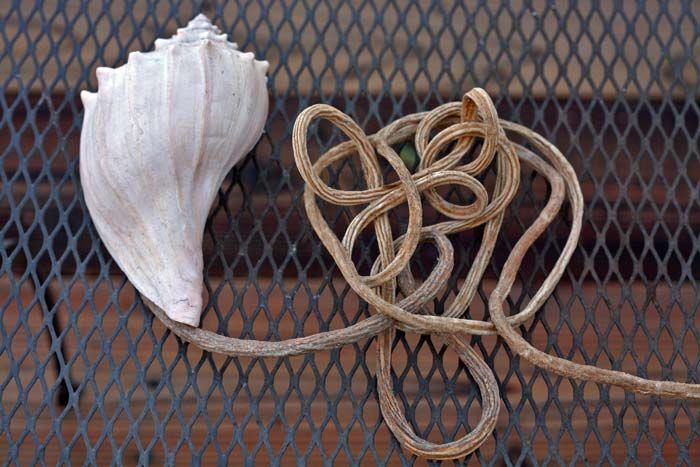
I knew from my studies that if you were to find yourself trapped inside a labyrinth such as this, the best method by which to find your way out again was to always move toward the left. No matter what, move in the same exact direction. Always left.
Unless, I thought, the point was not to be free of the labyrinth… unless you wished to remain inside.
I debated the point for a very long time, then at last followed my instincts. I moved right.
Before long, I came to another branch. And moved right again.
As I strolled through the corridors, the muted lights in the ceiling would flash on abruptly, then cut out again as I left that particular corridor behind. I assume motion detectors activated the lights only as long as they were needed. It was eerie to glance over my shoulder and see only endless darkness behind me, then look forward and see the same impenetrable blackness ahead of me.
Before long, I came to another branch. And moved right again and again and again...
To yet another Y-shaped path. On my left, the corridor continued apace. To the right stood a door. It was wide and rounded at the top, painted green and made of vertical wooden slats with splinters sticking out of it; it had a dirty brass handle, no knob.
A hollow agony brought on by pure fright clawed at the inside of my stomach. I wanted to run away, back into the alley. Take my chances and go.
But I remembered my studies: I stuck to the plan instead. I grabbed the handle and pulled. The door opened easily, as if the hinges were always kept well-oiled.
What struck me first was the total lack of rain. I recognized nothing about this world beyond the door.
I didn’t recognize the greenish-yellow mist that enmeshed the heavens, the mist that would part occasionally to reveal a gun-metal-gray sky resembling a circuit board inside a computer, the endless cracked desert landscape devoid of vegetation or animal life of any kind, the miles upon miles of skeletons that littered a tableau pocked with thousands of shallow pits (were they craters?), the strange black city in the distance.
The skeletons were immense, about 150 feet in length. They seemed more like winged reptiles. They had clearly been lying there for years. If there had been any sand to cover them, and any wind to blow it, their bones would have long since been hidden from view.
I didn’t know how many there were. Too many to count. They stretched off in all directions, dwindling in size to tiny white pebbles in the distance. A graveyard for dragons? I wondered if any spot existed in this desert not covered in death. This impression was strengthened by the mountain that loomed over the city, a mountain in the shape of what seemed to be a giant skull. If so, this skull was not human at all. It resembled what the skull of a jack-o’-lantern would look like, if jack-o’-lanterns were unfortunate enough to have skulls. A hint of the ape could be seen in its sloping forehead and prognathous jaw. I felt as if the skull had not been carved into the rock, but had somehow grown that way….
The city in the distance was hard to see, not because there was anything obstructing my line of sight but because the structure was hard to comprehend. It looked both natural and artificial at the same time, as if an entire metropolis had risen slowly over centuries like a mountain range, a city grown out of the earth itself.
For the first time I glanced downwards and took notice of the ground upon which I was standing. At some point I had stepped all the way through the door without even realizing it. I turned and looked over my shoulder; there was nothing but desert behind me. And carved into the ground beneath my feet was a geometric pattern: a square within a circle circumscribed by a larger circle; this circle overlapped an even larger square, thus creating triangle-shaped tips at the four directions of the square. I was now standing in the exact center of the innermost square. No door in sight.
I couldn’t go back, even if I wanted to. First that idling engine prevented me from leaving, now this disappearing door. I knew at that moment I had made my decision long ago, perhaps way back when I was still inside my mother’s womb. I had to keep moving, or lie down amidst the bones and die.
I picked my way through those skeletons for well over three miles, skirting around the scores of dark craters with special care. Never once did I see a hint of life, not even a single insect. As the city loomed closer and closer, I realized I would not encounter any civilized beings within those walls. It had clearly been devoid of life for years. And yet nevertheless I continued my trek, curious to see what manner of dwellings the dead race had left behind.
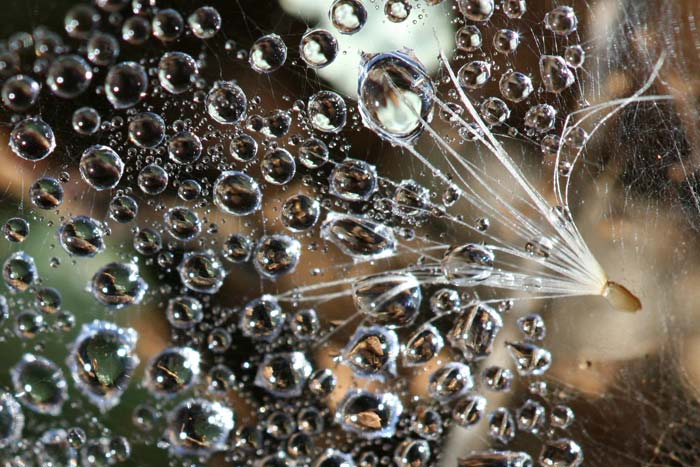
Here and there I noticed patches of bright—almost glowing—green grass. The grass certainly seemed to be alive, perhaps even sentient. Each blade wavered in the windless air like tentacles or a horde of worms; no patch was wider than two or three inches. Perhaps the “grass” was squirming so frantically because it was hungry. I didn’t dare touch the patches, and skirted a wide circle around them.
Within the wall stood an immense archway that might have contained an impenetrable gate at one time. About sixty feet above my head I could see deep black holes drilled into the ceiling of the arch; the holes were so large two full grown men could have fit inside each of them. I couldn’t imagine how large the bars had been, or who they had been built to keep outside.
I walked through the archway, beyond which lay the crumbling cyclopean towers, columns, spires, and minarets of whatever dead civilization had once dwelled there. The architecture reminded me of no culture I had ever studied, or perhaps all of them at once, a weird mixture of Sumerian, Arabian, Oriental, Greco-Roman, on and on and on. My speculations took me a step further: What if all the above civilizations had been inspired by a fragment of this one? What if—in some way—this city represented the Ur-civilization, the seed from which all others had sprung, the reality behind the metaphor of Dilmun in the Gilgamesh myth, Shamballah in the Far East, Eden in the Old Testament?
With such heretical thoughts flittering through my mind, I strolled along the curving streets, my eyes wide and filled with wonder and fear. None of the streets were paved, none of the buildings fully built. Perhaps the city—like any other mountain range—wasn’t dead, but a work-in-progress. The streets, much of which appeared to consist of a black volcanic substance, arched up, over, and around the buildings, sometimes spiraling ‘round and ‘round a lofty spire and terminating in mid-air, sometimes forming a bridge between two structures, sometimes plunging underground into cold dark depths. Not one of the windows that peered out at me from the basalt was geometric in shape. No squares, no rectangles, no tetrahedrons. They were all formless with round soft edges, like perfect circles that had somehow become distorted, melting over time. Perhaps the former inhabitants had possessed no aesthetic sense and didn’t care what the windows or streets looked like as long as they fulfilled their function. Whatever that function might have been.
I paused only when I reached the monoliths. These structures were 500-foot-high stone columns that stood in the middle of what looked like a central square—a gathering place, perhaps, for the city’s populace. The columns were shaped like stalagmites one might find on the floor of a subterranean cave. I studied them closely. Lying snugly in an arched cubbyhole within the right column, eighteen feet above its base, was a plastic baby doll battered from overuse; the cubbyhole was almost too small for it. If it had been a real baby, it would be screaming in pain; its right arm was nearly falling off, it had no clothes on, and black spots of dirt stained its inanimate face. Imbedded in the left column, three feet above the base, lay an eyeball the size of a fist that appeared to be made of pure gold. The pupil in this eye was not round, but a vertical slit. Like that of a reptile.
I crouched down and stared into the golden eye for a very long time, wondering if I should try removing it. I touched it, and it seemed to wobble slightly within its ancient niche. It probably wouldn’t take that much effort to….
But the doll was more intriguing to me, perhaps because it was farther away. As a child I’d read hundreds—perhaps even a thousand and one—Arabian myths in which a thief enters a forbidden temple, steals a sacred object, and comes to an inevitable bad end because of it. And yet those were just stories. And the doll was clearly not valuable….
I found a foothold in the pillar and began to climb. Once I had gone far enough, I held onto the pillar with one hand while trying to pry the doll loose with the other. It was lodged in deeper than I had expected. The rock surrounding the doll was loose and crumbling. All I had to do was pound at the ancient edifice until fragments of stone flaked away; the baby dropped and hit my left collarbone. I snatched it before it could fall to the ground, gripped it tightly to my chest. For some reason it felt like dry ice against my skin. That’s when I knew. I held my breath, listening to the overwhelming silence, expecting Talos the bronze giant of Crete to begin tossing boulders at me as in that ancient Greek myth. But nothing happened. The city remained still. Just stories. I breathed a sigh of relief, slipped the doll into the leather sack, and scrambled back down to earth.
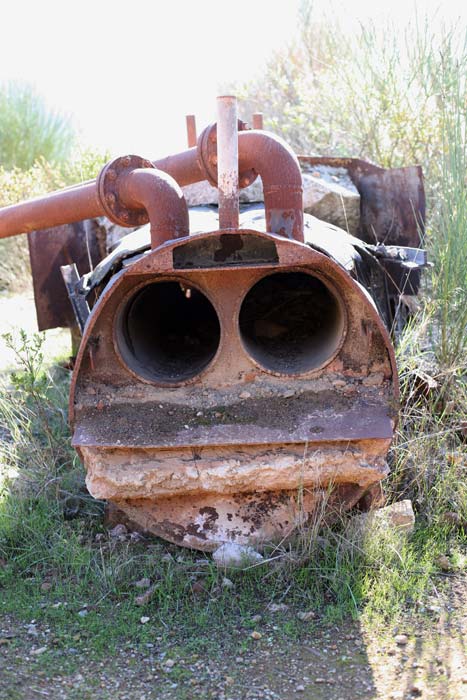
The second my feet touched the ground, I saw them: on either side of me, within two separate ancient edifices, two separate doors. Not the doors a giant would use. Doors for someone my size. The left door was wide and rounded at the top, painted green and made of vertical wooden slats with splinters sticking out of it; it had a dirty brass handle, no knob. The right door was wide and rounded at the top, painted green and made of vertical wooden slats with splinters sticking out of it; it had a dirty brass handle, no knob. Two doors. Both the same.
Neither had been there when I began my climb, I was certain of that. I realized, too, that the greenish-yellow mist in the sky had now dissipated a bit, revealing something new: a massive emerald-colored sun that hung low in the horizon like a distorted eye peeking over the rim of the world. The strange circuit board was gone. Rays of sunlight poured down out of the mist and bathed the skull-faced mountain in a green glow. From where I stood, the pillar from which I had stolen the doll seemed to puncture the cavernous left eye of the mountainous skull… an eye now bathed in bright green…. And at this point, for no apparent reason, the old fear came upon me….
In a sudden panic, I rushed to the left to swing open the door.
Breathing erratically, maybe not at all, I shut my eyes, stepped through the door… and without even looking, closed it behind me. I found myself standing beside a clear quiet stream in the middle of a forest, the fear gone now, my breathing normal. Just like that. Day again. The sky blue—a stunning, cloudless blue. And leaning up against a tree: a non sequitur.
A rickshaw.
It seemed like a perfectly operational bicycle, and since nobody was around to claim it, I grabbed hold of the handle bars and walked it through the grass and foliage until I came upon a dirt path. At this point I hopped on the bicycle and started riding. It would have seemed odd, back home, a man in a tuxedo riding a rickshaw through a forest. Thankfully there was nobody around at the moment to comment on this scene.
I saw many peculiar things during that bike ride. I saw a city suspended in the branches of a forest in which a race of people made of paper went about their lives in a normal bourgeois manner, like you or I. I saw a tribe of hirsute, bear-like giants digging a grave for a sparrow the size of a car; they didn’t even notice me passing by. I saw a group of people whose heads looked like spiders turned upside down, their eight legs wriggling in the air as if wishing to escape their own bodies; they were hitchhiking on the side of the road with their thumbs outstretched, but something told me to just keep riding. I saw spectral baby-heads the size of horses who floated beside me for fifteen miles, wailing non-stop; eventually they just popped out one by one, like balloons, leaving behind faint rainbow-traces that soon dissolved into the ether. I saw a battalion of skeletons in military uniforms marching a chain of live prisoners through the woods; the prisoners appeared to be exhausted, only hours away from joining their captors in death. I saw a tall patchwork gentleman whose body appeared to have been stitched back together after having met with a serious industrial accident, but his most important limbs were missing and those the surgeons couldn’t locate had been replaced with clocks, all different kinds of clocks,—hourglasses, sundials, pocket watches, cuckoos, clock-radios, alarm clocks, grandfather clocks, atomic clocks, clocks clocks clocks—all of them ticking away madly, and all of them quite wrong; the clockwork man reached out for me with impossibly long, nimble fingers and asked me in the saddest voice I’d ever heard, “Please tell me what time it is!” as I stepped up my speed, leaving him in the dust. I saw a swarm of insect-sized gnomes armed with diamond-bit drills that tried to sabotage my wheels; I pulled over to the side of the road and squeezed their heads off one by one, after which my entire body was scarred with shallow drill holes. I saw a city whose buildings were made of flesh, the wounds in her walls excreting blood, her streets soft to the touch like a mother’s breast, her refineries spewing recycled feces into a cloudless sky that dripped tears like hail. I saw a well of viscous black liquid, concentrated death, from which a race of insubstantial shadows desperately attempted to satisfy their insatiable thirst, ever in vain. I saw the leaves of the forest slowly losing their color, dying, fading away, the trees shriveling, growing more and more gnarled with each passing mile, until at last the forest gave way to a desert. Not like the cracked, barren desert I had just left, but a desert filled with life, like the sands of the Sahara. But still the path remained before me. I followed it. And following it, I saw the hull of a giant clipper ship jutting up out of the desert; the ship appeared to be empty except for a lone pale child (perhaps a boy, perhaps a girl) who was strapped to the helm, its tiny hands clutching the wheel, its wide lifeless eyes staring into nothing. I saw a vast field of emaciated arms growing out of the desert like plants, their fingers straining, wriggling, reaching for the sun. I saw a downed B-1 bomber half-covered in sand, caught fleeting glimpses of the hyenas who had taken refuge within the hollow metal shell, their abrasive giggles trailing me into the twilight. I saw a pyramid carved of bone tapering up so far into the sky that clouds obscured the capstone; I could hear music hailing from somewhere within those walls, music so beautiful I felt like abandoning the bicycle and spending the rest of my life in search of an entrance into that enigmatic structure. Instead I remained on the path.
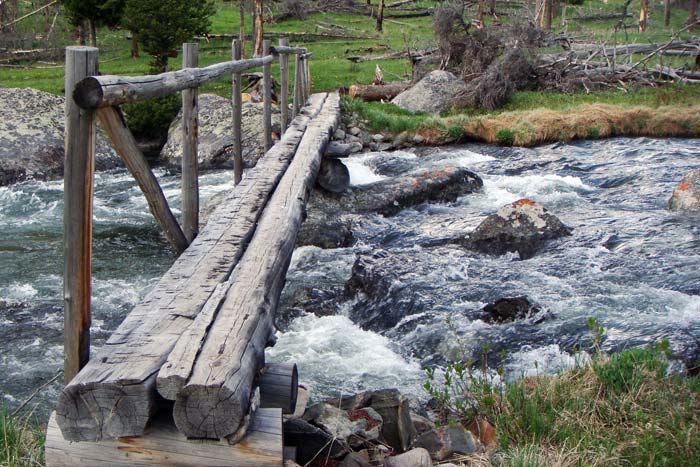
And remaining on the path, I came to the door.
A familiar green door I had seen three times before, but had entered only twice.
The door stood in the middle of nowhere, in this desert, within a geometric pattern inscribed in the sand as if by a bored child dragging a pointy stick behind him: a square within a circle circumscribed by a larger circle; this circle overlaps an even larger square, thus creating triangle-shaped tips at the four directions of the square. I allowed the rickshaw to fall to the desert floor, walked right into the circle. Into the square. Into the circle. Into the square….
I grasped the brass handle, thinking of the fairy stories my mother used to read to me when I was still inside her womb, feeling the old fear, accepting it, wanting it, loving it now.
Opening myself to it fully.
Rain still poured down upon the alley. I slammed the double doors, hearing a distinct click as they locked behind me, then walked back up the alley. The smell of urine and months-old garbage assaulted my nostrils. I ignored these scents, ignored the heavy rain pelting me in the face, ignored the incessant chitter of rats on either side of me. I strolled at a leisurely pace toward the idling engine where my companions still awaited me.
Upon reaching the curb, I surveyed my surroundings. Yes, the trio had taken me a long way from home. I recognized that truncated skyline immediately. The city seemed deserted, except for a couple huddled next to one another across the street: a middle-aged man and a teenage girl standing beneath a defective lamppost, bathed in a pool of flickering fluorescent light. The girl reached out and took the man’s hand, drew him toward her. The man was slow to respond, as if hesitant for some reason.
The back door of the Rolls Royce opened. A white glove emerged into the rain, palm spread out. Rain drops hit it one by one by one. “Did you find it?” The deep, garrulous voice of the big man.
I reached into the sack. What I removed was not a battered plastic doll, however, but a ruby shaped like a rose. For a second I panicked, wondering if I’d lost the treasure. That second passed. I said nothing as the ruby dropped into his palm. Nothing as I watched the palm wither into a fist and retract into darkness. Oddly, the ruby’s absence felt just as cool to the touch as the doll’s presence.
I followed the hand inside.
All of them sat in the back, still wearing their masks. The big man pulled a fourth mask out of his jacket pocket, the same pocket into which he now deposited the ruby. This mask looked exactly the same as the ones worn by the three men. Same design, same arabesque patterns.
Except this new mask was not white at all. It was black. This puzzled me, but not deeply. Were the black ones for the new initiates?
“Congratulations,” the man said. I couldn’t help but feel pleased. I accepted the mask, slipped the threads over my ears, tightened them until they were sturdy enough to stay affixed to my skull forever, if need be.
The big man said, “What shall we do now, Master?”

Upon hearing that word, those two unexpected syllables, the fear enveloped me once more. My body shivered. My fingers tightened on the door handle. Tightened, tightened. I grew flustered, confused. I felt like bolting from the car, from my own memories, my own past. Instead I forced myself to slam the limo door behind me, muting the sound of the strengthening storm. I felt my eyes tearing up, and I didn’t even know why. I whispered, “I’ve been through this before, all of this, haven’t I?”
Across the street, through the tinted window, I saw a middle-age man kissing a teenage girl dressed in torn fishnet stockings, a bright red tube top, matching mini-skirt, and six-inch high heels. He stroked her painted cheek with the back of his hand. Each time his lips touched hers, each time his heart jumped a beat, I felt the shiver. I felt a special thrill, like a forbidden orgasm, shoot up my spine. Oh, his pulse was racing so… it’d been such a long time since he’d been with a woman… he was afraid he wouldn’t be able to….
I knew what he was thinking. Could feel what he was feeling. An intense form of fear, too intense to ignore. But not intense enough.
Not the right kind of fear. The truly illuminated, those of us infected with the spark, were crippled by a fear that burned like ice. We always had been. It’s what made us who we are. I knew that now. I’d always known it.
Sometimes, it was necessary to learn the old lessons all over again.
“Something wrong, sir?” said the man beside me. He was afraid too, I could feel it. He was afraid of me. Afraid of my confusion. A “master” must never be confused. Full of fear, yes, but never uncertain.
“Drive away,” I said.
“But… where are we going?” said one of my white masks.
“To the hiding place.”
“Do you… remember how to find it?”
Now I did. The signs were unmistakable, like omens the color of blood emblazoned on the night sky. “The fear will guide us,” I said calmly.
The masks nodded and seemed to draw strength from the certainty in my voice.
The chauffeur, invisible behind the glass, heard my command and pulled away from the curb, leaving the alley off 16 th Street deserted except for the stench of rotting garbage mixed with urine and the restless shifting of sleeping winos trapped in nightmares they would never remember, and the scurrying sound of hungry rats. And the doors. Those nondescript, metallic, locked doors.
About the Author
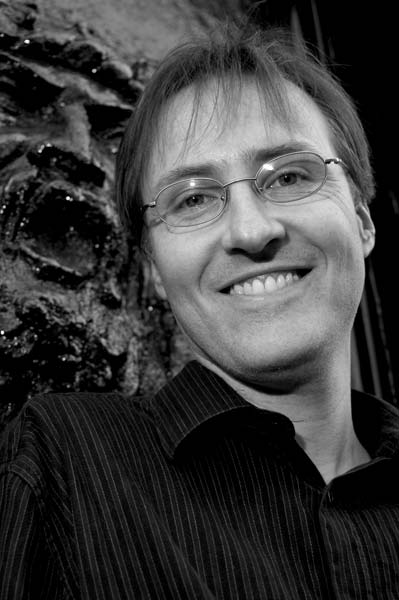
Robert Guffey’s short stories, articles and interviews have appeared in such magazines and anthologies as After Shocks, The Chiron Review, The Fortean Times, The HunterGatheress Journal, Like Water Burning, Modern Magic, Mysteries, New Dawn, The New York Review of Science Fiction, Paranoia, The Pedestal, Riprap, Steamshovel Press, and The Third Alternative. Further stories are scheduled to appear in Allen Ashley’s forthcoming PS Publishing anthology Catastrophia, as well as in Dark Jesters edited by Nick Cato and L.L. Soares. He is currently teaching English at CSU Long Beach and can be contacted at rguffey@hotmail.com.
Post a comment on this story!